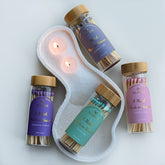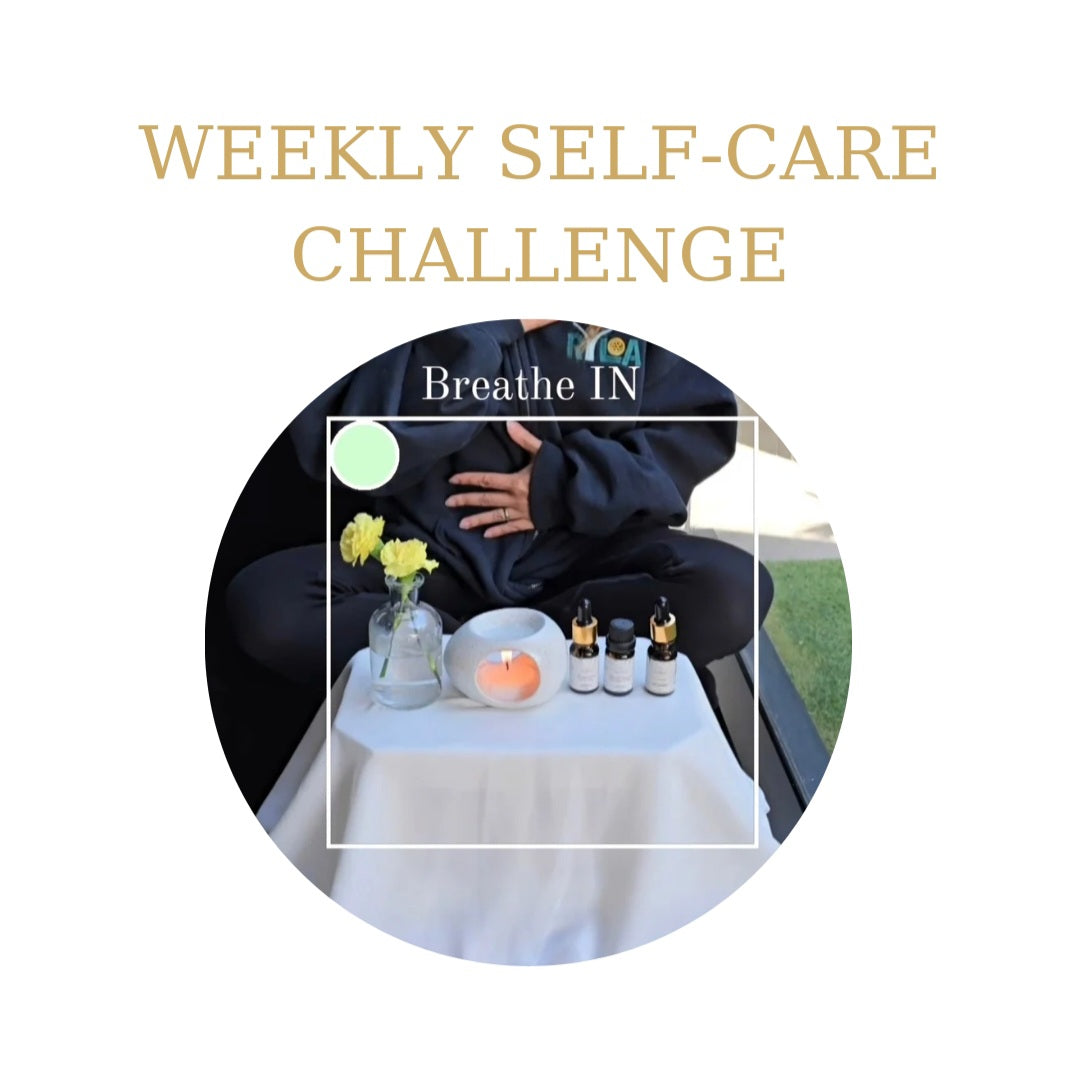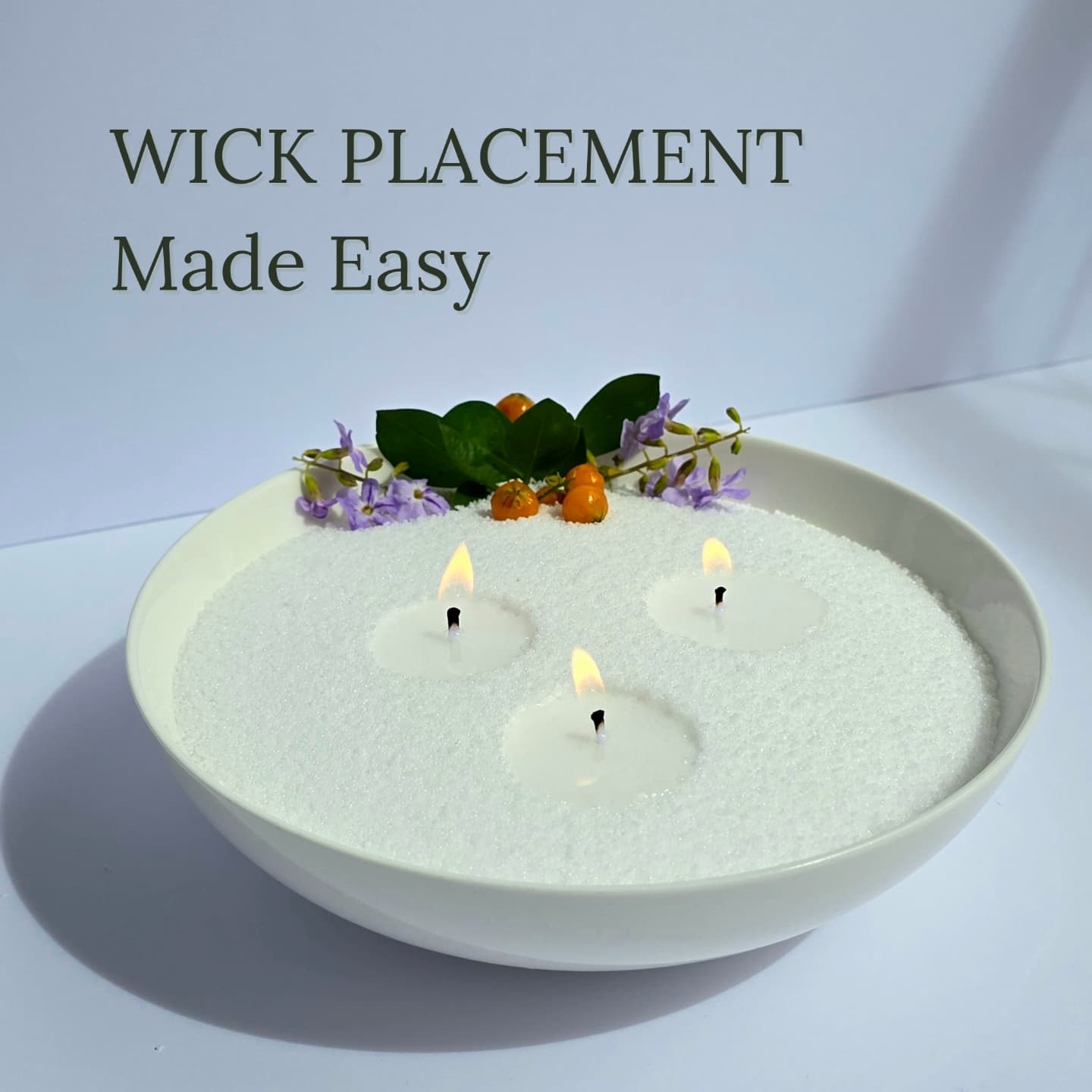Essential Oil vs. Fragrance Oil: Navigating the Aromatic Landscape
Essential oils and fragrance oils are the two dominant players in the scent space; each possesses unique characteristics that cater to different needs, preferences, and sensibilities. Let's delve into an honest, straightforward comparison between these two aromatic powerhouses, to help you choose the right oil that resonate with your lifestyle and values.
|
Aspect |
Essential Oil |
Fragrance Oil |
|---|---|---|
|
Scent Strength |
Generally subtle and can vary based on the plant source. |
Typically stronger and more consistent due to synthetic components. |
|
Production & Manufacture |
Distilled from plants, capturing the essence, scent, and flavour. |
Manufactured synthetically or combined with natural scents to mimic specific fragrances. |
|
Ingredient |
Pure plant extracts without any additives. |
Can contain natural extracts, synthetic aroma chemicals, or a blend of both. |
|
Purpose |
Used for their therapeutic properties, aroma, and in natural products |
Primarily used to impart fragrance in a variety of products. |
|
Compatibility with Candles |
Compatible, but their therapeutic properties might diminish when heated. |
Highly compatible, designed to maintain scent throw and stability when heated. |
|
Pros and Cons |
Pros: Natural and therapeutic benefits. Cons: Less stable, can be more expensive, and scent may not be as strong or long-lasting. |
Pros: Strong, consistent scent, and cost-effective. Cons: Lacks therapeutic benefits and may contain synthetic components. |
|
Pricing |
Generally more expensive due to the complex extraction process. |
Less expensive due to synthetic manufacturing processes. |
|
Therapeutic Effects |
Known for physical and psychological benefits, varying by type. |
Primarily used for fragrance; does not offer therapeutic benefits. |
For those curious about the therapeutic benefit of essential oils, we have the list below.
|
Essential Oil |
Therapeutic Benefit |
Notes on Scientific Evidence |
|---|---|---|
|
Lavender |
Stress and Anxiety Reduction |
Numerous studies show lavender's efficacy in reducing stress and anxiety levels, improving sleep quality. |
|
Sandalwood |
Mood Enhancement and Relaxation |
Several studies have indicated its potential to reduce anxiety and stress levels, making it a valuable option for calming the mind and body. |
|
Jasmine |
Antidepressant and Stress Reduction |
Scientific research has highlighted its potential to uplift mood and induce feelings of relaxation and well-being. Additionally, jasmine oil has been linked to improved sleep quality and reduced symptoms of insomnia in some studies. |
|
Chamomile |
Sleep Aid and Anxiety Reduction |
Studies suggest chamomile oil can improve sleep quality and reduce anxiety, acting as a mild sedative. |
|
Peppermint |
Enhanced Digestion and Nausea Relief |
Research supports peppermint oil's role in easing digestive issues and relieving nausea, especially in IBS patients. |
|
Eucalyptus |
Respiratory Health Improvement |
Eucalyptus oil is noted for its antimicrobial properties and ability to help relieve symptoms of coughs, colds, and sinus congestion. |
|
Tea Tree |
Antimicrobial and Acne Treatment |
Scientifically recognized for its antimicrobial properties, tea tree oil is commonly used to treat acne and skin infections. |
|
Lemon |
Mood Enhancement and Antiviral Properties |
Research indicates lemon oil can improve mood and possesses antiviral properties, making it useful in cleaning and disinfecting. |
|
Frankincense |
Anti-inflammatory and Immune Support |
Frankincense oil is studied for its anti-inflammatory effects and potential to support the immune system. |
|
Rosemary |
Cognitive Function and Memory Enhancement |
Some evidence suggests rosemary oil can improve cognitive performance and memory recall. |
|
Ylang-Ylang |
Blood Pressure Reduction and Stress Relief |
Ylang-ylang oil is known for its potential to reduce blood pressure and stress levels in some individuals. |
|
Bergamot |
Stress Reduction and Skin Health |
Bergamot oil has been studied for its ability to reduce stress and anxiety, as well as its antimicrobial properties that may benefit skin health. |









